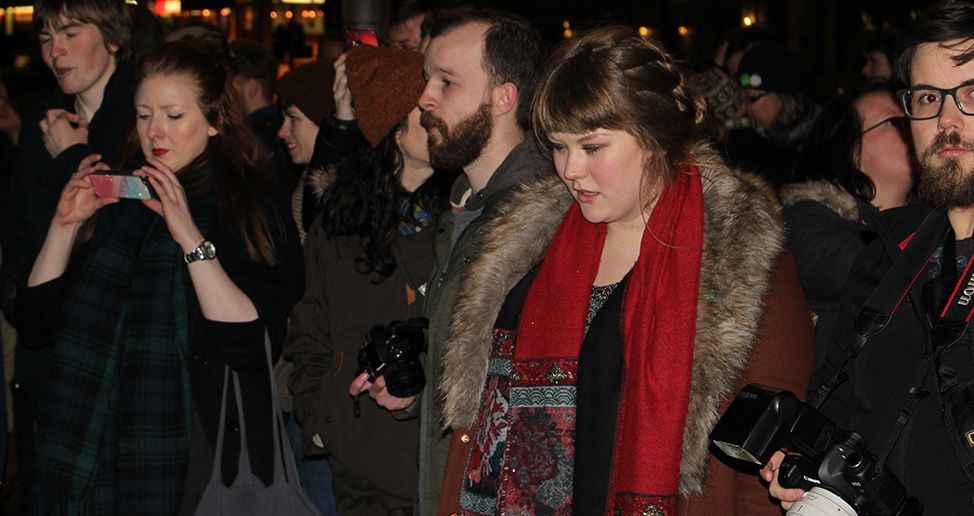by Sophia Lycouris and Katie Bonnar
2016 is a turbulent year for Scotland, Europe and the entire world – and today is the 8th of March, the International Women’s Day, which we should celebrate.
But how should we do this?
It is of course important to continue to fight for women’s equality, highlight all achievements so far, and pay attention to anything that continues to interfere with the completion of this long-term project.
Very much in line with this approach, the International Women’s Day website says the campaign theme this year is #PledgeForParity. This is an excellent theme, a demand to incorporate gender balanced leadership, more inclusive structures and decision making across society, and to identify and remove workplace bias. This also has a focus equivalent to the amazing older slogan FIGHT UNTIL WE WIN – a practical approach which suits best the nature of the struggle in the 21st century.
The #PledgeForParity provides a focus for the continuing struggle against gender-based inequality, and direction for the development of concrete feminist policy aiming to shape and challenge habitual patterns, and create social and intellectual structures for change. We need to learn to act differently, but we also need to learn to think differently.
Wrong assumptions are engrained in our ways of thinking as a result of residual patriarchal principles. Looking at the origins of the nuclear family, Marx and Engels observe links between the birth of the idea of property in agricultural societies and the period in which men started to dominate women. This was the beginning of the patriarchal society when unequal power relationships between various groups of human beings (not just between men and women), started to become possible and ‘normal’. This normality was established through (patriarchal) ways of thinking that made inequality of power appear as something normal. These distortions are still responsible for some of the confusion we experience today, when we try to change behaviour and adopt non gender-biased approaches. How should we deal with problematic ways of thinking then?
There is one simple rule that applies here. Ways of thinking cannot be addressed in abstraction. We need to link them with concrete examples of lived experience, with our own everyday lives, to create bridges which will allow us to go deeper into the issues of gender inequality and understand what is going on.
We live in a racist, patriarchal, heteronormative, imperialist, classist, transphobic, disablist, xenophobic and ageist world. We should confront these ignorant and aggressive taints actively in wider society, including vigilance inside our own lives where they manifest or with individuals. We need to build links – intersections – between progressive movements against all kinds of oppression.
Our struggles are bound up together. What is the best way to approach this complexity?
There is so much activity this month aiming to draw attention to women issues, a large number of amazing initiatives addressing all sorts of historical, intellectual, practical, strategic and tactical aspects of this topic.
Please send us your questions and opinions to socialmedia@scottishsocialistparty.org and we will use them to start different discussion threads. We might run online debates in blogs, invite experts to write short articles for online discussion, organise virtual panels, create video interviews. We will welcome wide participation in all activities. We see this as a long-term project that could expand across several months. It is useful to have time to address these issues slowly and calmly, and there has to be space to rehearse different approaches in the exploration of the relationship between feminism and socialism. This is a difficult project with unknown territory, yet if a Socialist Party cannot initiate difficult projects, who else will?
Sophia Lycouris is a Greek artist and academic who moved to the UK in 1990. She moved to Scotland in 2007, and became involved with the Radical Independence Campaign, Independence Live and Women for Independence. Katie Bonnar is a teacher, and has been working with the Scottish Socialist Party for many years – she presently serves on the party’s Executive Committee.

